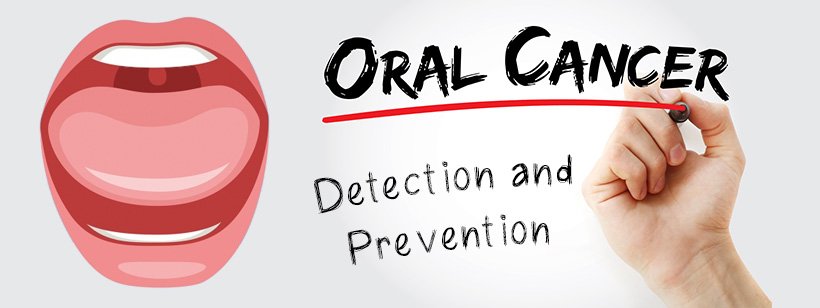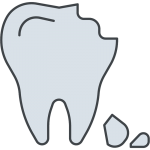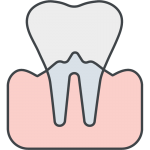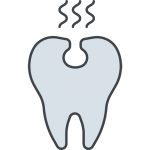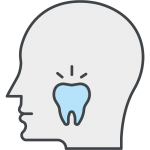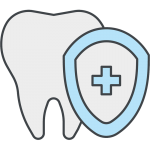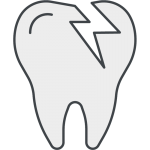Oral cancer constitutes about 6.5% of all cancers in Australia. Early detection of cancer always has a better prognosis in terms of its treatment outcome. At Aperture Dental, we always screen and check for signs of oral cancer as part of your regular check-up. It is also important that you let us know if you have any concerns.
Knowing the Symptoms
Oral cancer sometimes mimics an ulcer, appearing as a persistent red/white patch, or a firm swelling. Sometimes, it is painless, and this is why people delay their examinations. If you think you have any of the following symptoms*, get it checked out as soon as possible:
- Persistent ulcers – unexplained ulcers that last for more than two weeks
- Persistent or growing lump
- Fixation of tissues
- White patches in the mouth
- Neck lumps or swellings
*Not all white patches/lumps and bumps are cancerous in nature. Most are due to trauma or infection, but it is important to get all symptoms checked out. It is also important to note that smoking, high consumption of alcohol, poor oral hygiene and age are risk factors for oral cancer.
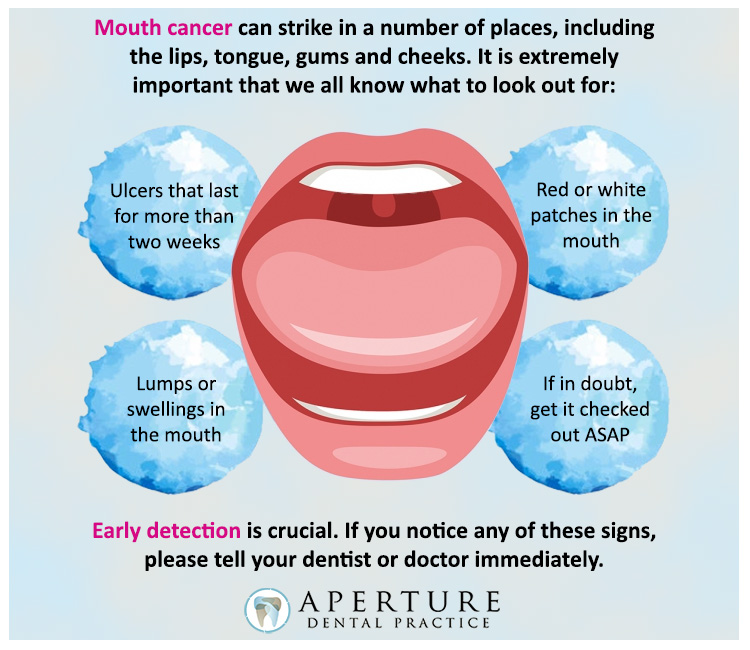
Reducing Your Risk
Around 59% of mouth cancers in Australia are caused by smoking and around 31% are caused by excess alcohol consumption. So quitting smoking and moderating alcohol consumption will significantly reduce your risk of developing mouth cancer, especially those inside the mouth.
While there’s no proven way to prevent mouth cancer, there are some things you can do by adjusting your lifestyle to reduce your risk of mouth cancer:
1. Stop Smoking (or don’t start at all)
If you use tobacco, stop. If you don’t use tobacco, don’t start. Using tobacco, whether smoked or chewed, exposes the cells in your mouth to dangerous cancer-causing chemicals.
It is well documented that smoking has a strong link with an increased risk of oral, throat and lung cancer. Smoking tobacco releases over 4000 chemical compounds into the mouth and air. It is no surprise that a smoker will have a 10 – 20 times higher chance of developing cancer than a non-smoker. In the mouth, the most commonly affected areas are lips, under the tongue, the tongue itself, cheeks and the palate.
Speak to your GP if you need help to stop smoking. If you have any concerns about oral cancer, contact us on 07 3188 9477, and we are here to help!
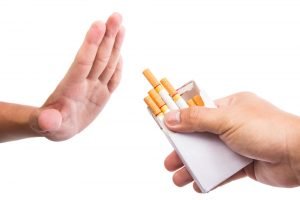
2. Reduce Alcohol Consumption
Drink alcohol only in moderation, if at all. Chronic excessive alcohol use can irritate the cells in your mouth, making them vulnerable to mouth cancer. If you choose to drink alcohol, do so in moderation. Healthy men and women should drink no more than 10 standard drinks a week and no more than 4 standard drinks on any one day.

3. Avoid Excessive Sun Exposure to your Lips
You can protect the skin on your lips from the sun by staying in the shade when possible. Remember to wear a broad-brimmed hat that effectively shades your entire face, including your mouth. Apply a sunscreen lip product as part of your routine sun protection regimen.
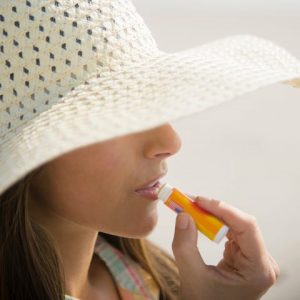
4. Regular Dental Check-Up’s
Make sure to see your dentist regularly. As part of a routine dental check-up at Aperture Dental, your dentist will inspect your entire mouth for abnormal areas that may indicate mouth cancer or precancerous changes. If you have any concerns, please let us know before or during your appointment.
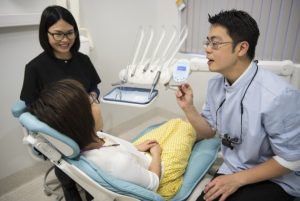
Book Your Dental Check-Up Today
Call us now on 07 3188 9477 for more information or book an appointment.


